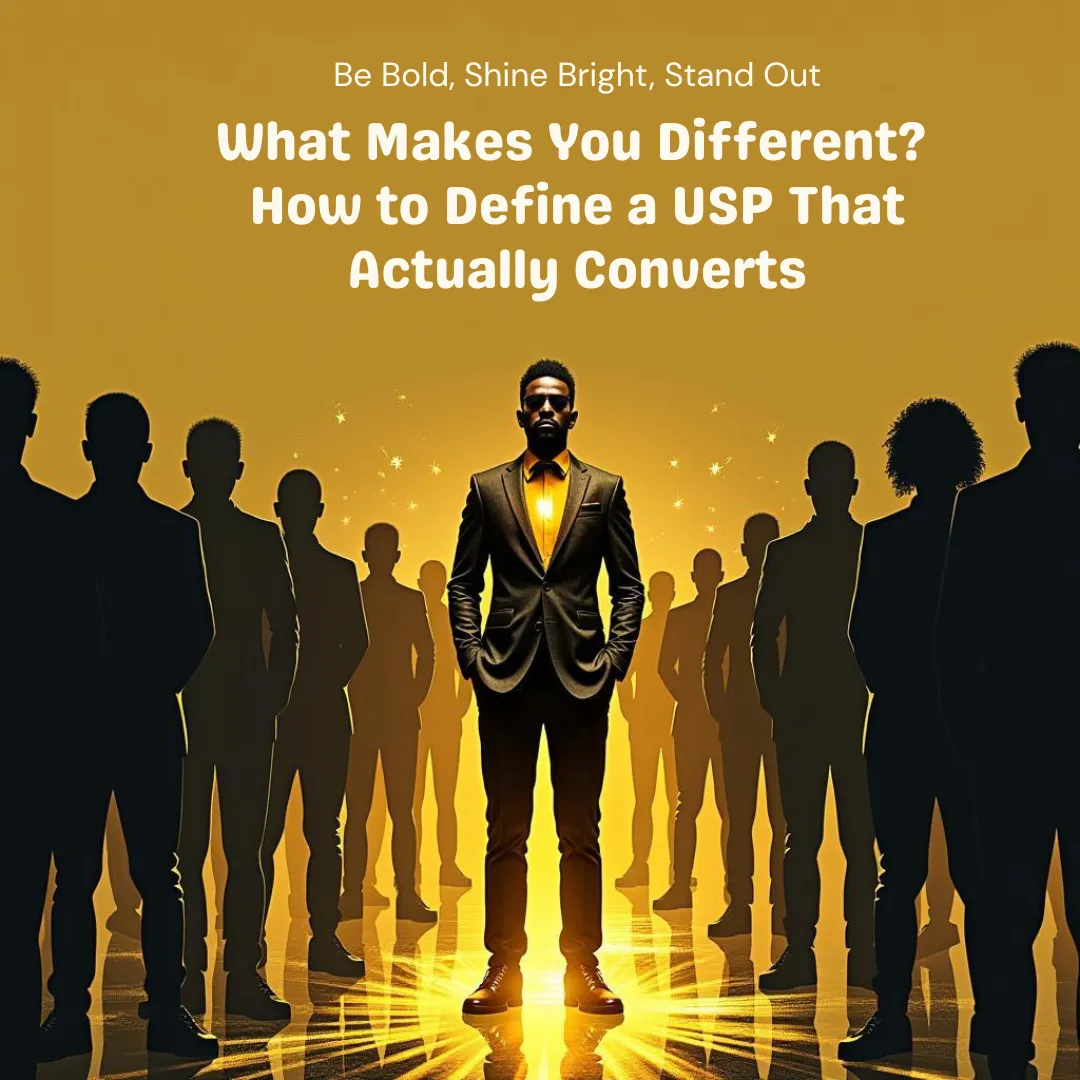
What Makes You Different? How to Define a USP That Actually Converts
What Makes You Different? How to Define a USP That Actually Converts
In today’s crowded marketplace, being “good” isn’t good enough. With endless options available at a customer’s fingertips—and with competition fiercer than ever—standing out comes down to answering one critical question: “What makes you different?”
That answer is your Unique Selling Proposition (USP). It’s not just for businesses. Your USP is equally powerful when you’re a professional looking for your next big career move. Whether you’re an entrepreneur trying to attract clients or a job seeker applying for a role, your USP is the factor that helps decision-makers say: “That’s who I want.”
Why Your USP Matters More Than You Think
When you have a clear USP, you don’t compete on price, luck, or generic claims. You:
Attract the right clients—or employers who see your value and are willing to invest in it.
Create clarity in your pitch or resume so people know exactly why you’re the best fit.
Differentiate yourself in ways that others can’t easily copy.
Without it, you risk blending into the sea of “just another option”—whether that’s as a business or as one of hundreds of applicants for a job.
How to Define a USP That Actually Converts
A USP goes beyond saying “we provide quality” or “I’m a hard worker.” Everyone says that.
A powerful USP speaks directly to the needs, goals, and pain points of the person you’re trying to reach—be it a customer or a hiring manager. Here’s how you can craft one:
1. Know Your Audience Inside Out
For businesses: Understand your customer’s frustrations and desires.
For job seekers: Understand the company’s challenges and the specific skills they’re hiring for. Your USP should show how you directly solve those needs.
2. Identify What You Do Best (and Different)
For businesses: Highlight your unique strengths, innovations, or processes.
For job seekers: Pinpoint the skills, experiences, and results that set you apart from other applicants.
3. Focus on Outcomes, Not Features
For businesses: Don’t just say “we offer coaching”—say “we help businesses double profits in six months.”
For job seekers: Don’t just say “I’m a project manager”—say “I’ve led cross-functional teams that delivered $10M projects on time and under budget.”
4. Keep It Clear and Simple
Whether it’s a tagline, an elevator pitch, or a resume headline, your USP should be short, strong, and memorable.
5. Test and Refine
Your USP should evolve as you grow. Try it in your marketing, in interviews, or on LinkedIn, and refine it based on the response you get.
Examples of Strong USPs
Domino’s Pizza: “You get fresh, hot pizza delivered to your door in 30 minutes or less—or it’s free.”
FedEx: “When it absolutely, positively has to be there overnight.”
Job Seeker Example: “I help companies turn underperforming projects into million-dollar success stories.”
Notice how each one is clear, specific, and focused on results.
Final Thoughts
Your USP is more than words—it’s your promise. For businesses, it’s the value you bring to your customers. For job seekers, it’s the value you bring to an employer.
When done right, your USP doesn’t just make you stand out—it converts interest into action. It’s what moves someone from “just another option” to “the obvious choice.”
So ask yourself today: What makes you different—and are you communicating it in a way that truly converts, whether in business or your career?